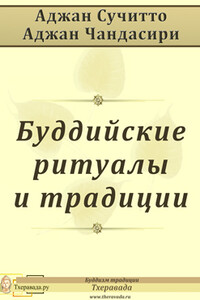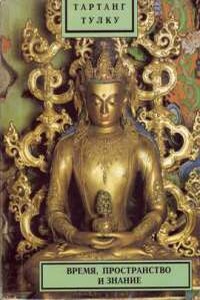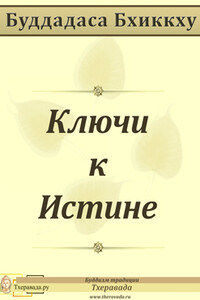Mastering the Core Teachings of Buddha. An Unusually Hardcore Dharma Book - [4]
When he came back, the benefits of his practice were obvious, and a few years later I began to try to follow a similar path.
In 1994, I began going on intensive meditation retreats and doing a lot of daily practice. I also ran into some very odd and interesting experiences, and began to look around for more guidance on how to proceed and keep things in perspective. Good teachers were few and far iv
Foreword and Warning
away, their time limited and often expensive to obtain, and their answers to my questions were often guarded and cryptic. Even my old music friend was keeping most of what he knew to himself, and issues around disclosure of meditation theory and personal practice details nearly cost us our friendship.
Frustrated, I turned to books, reading extensively, poring over texts both modern and ancient looking for conceptual frameworks that might help me navigate skillfully in territory that was completely outside my previous experience. Despite having access to an astounding number of great and detailed dharma books, I found that they left out lots of details that turned out to be very important. I learned the hard way that using conceptual frameworks that were too idealistic or that were not fully explained could be as bad as using none at all. Further, I found that much of the theory about progress contained ideals and myths that simply did not hold up to reality testing, as much as I wanted them to.
I also came to the profound realization that they have actually worked all of this stuff out. Those darn Buddhists have come up with very simple techniques that lead directly to remarkable results if you follow instructions and get the dose high enough. While some people don’t like this sort of cookbook approach to meditation, I am so grateful for their recipes that words fail to express my profound gratitude for the successes they have afforded me.
Their simple and ancient practices revealed more and more of what I sought. I found my experiences filling in the gaps in the texts and teachings, debunking the myths that pervade the standard Buddhist dogma and revealing the secrets meditation teachers routinely keep to themselves. Finally, I came to a place where I felt comfortable writing the book that I had been looking for, the book you now hold in your hands.
This book is for those who really want to master the core teachings of the Buddha and who are willing to put in the time and effort required. It is also for those who are tired of having to decipher the code of modern and ancient dharma books, as it is designed to be honest, explicit, straightforward and rigorously technical. Like many of the commentaries on the Pali Canon, it is organized along the lines of v
Foreword and Warning
the three basic trainings that the Buddha taught: morality, concentration and wisdom.
Throughout this book I have tried to be as utilitarian and pragmatic as possible, and the emphasis is always on how to actually “get it” at the level that makes some difference. All sections also assume to some degree that you have a practice of some sort, hang out in some sort of spiritual scene, and know a bit of the standard dharma lingo. All sections also assume that you are willing to do the work.
I have tried to include enough information to make this book capable of standing on its own as a manual of meditation and for walking the spiritual path. However, I have also tried to focus on those areas that I consider to be my core competencies and also those areas of the spiritual path that I do not feel have been adequately covered in the works that have come before this one. This book shines in areas of technique and the fine points of very high-level practice. However, the spiritual life is vast beyond measure and cannot possibly be adequately covered in a single book. Thus, I will often refer you to other excellent sources for more details on those topics that I feel have already been covered quite well by other authors. I strongly suggest checking out at least some if not all of these other sources.
Like my own practice, this book is heavily influenced by the teachings of the late, great Mahasi Sayadaw, a Burmese meditation master and scholar in the Theravada Buddhist tradition, and by those in his lineage and outside it. There are numerous references to other excellent traditions as well, some Buddhist and some not. It is my sincere wish that all diligent students of meditation find something in this book that is of practical value to them.
I have included a few of my own experiences and labeled them as such. This is done to try to add some sense of the reality of what is possible, both in terms of successes and failures. They should add a human dimension to the theory. However, if you find that these stories get in the way, or if they seem to have too much of the quality of “let me tell you about my personal spiritual quest,” please do us both a favor and skip over them without a second thought.
I have also written this book in what is clearly my own voice. Those who have read this work who know me tell me that they can almost hear vi

Буддийские ритуалы и традицииСоставлено авторами английского издания на основе лекций Аджана Сучитто и Аджана Чандасири в монастыре Читтавивека(Великобритания)Перевод с английского выполнил мирянин Кхантибалопо изданию «Buddhist rituals and observances» © Amaravati Publications 2001Сайт буддийской литературыwww.dhammabooks.ruТолько для бесплатного распространенияМосква, 2007 год.
![Как действует медитация [Лекция в Кемптене, сентябрь 1992]](/build/oblozhka.dc6e36b8.jpg)
В книге рассказывается история главного героя, который сталкивается с различными проблемами и препятствиями на протяжении всего своего путешествия. По пути он встречает множество второстепенных персонажей, которые играют важные роли в истории. Благодаря опыту главного героя книга исследует такие темы, как любовь, потеря, надежда и стойкость. По мере того, как главный герой преодолевает свои трудности, он усваивает ценные уроки жизни и растет как личность.

В книге рассказывается история главного героя, который сталкивается с различными проблемами и препятствиями на протяжении всего своего путешествия. По пути он встречает множество второстепенных персонажей, которые играют важные роли в истории. Благодаря опыту главного героя книга исследует такие темы, как любовь, потеря, надежда и стойкость. По мере того, как главный герой преодолевает свои трудности, он усваивает ценные уроки жизни и растет как личность.

Знакомые слова «пространство», «время», «знание», взятые в таком порядке, имеют тенденцию ускользать в своем значении. С позиций здравого смысла «пространство» идентифицируется с непрерывной протяженностью, рассматриваемой либо как пустота, либо как то, что содержит в себе вещи, будь то пылинка, скопление галактик или даже вселенная как целое. «Время» туманно интерпретируется как переход от прошлого к будущему или как среда, в которой события направлены так, что мы говорим о потоке или течении времени или о нашем осознавании, несомом во времени и через время.

Буддадаса БхиккхуКлючи к ИстинеPедакция перевода: 15.07.2008Перевод с английского: SVисточник: Сборник лекций "Keys to Natural Truth"Второе издание: 1999 The Buddhadasa Foundation (Чайя)

Аджан СумедхоСборник бесед на ретрите.В книгу вошли беседы Аджано Сумедхо проходившие в: монастыре Читтавивека в феврале 1981 г., август 1982 г., апреле 1983 г., на летнем ретрите Буддийского Общества в Великобритании, 1979 г. и в 1982 г., на ритрите в буддийском центре в Оукен Холте, апрель 1979 г.,.